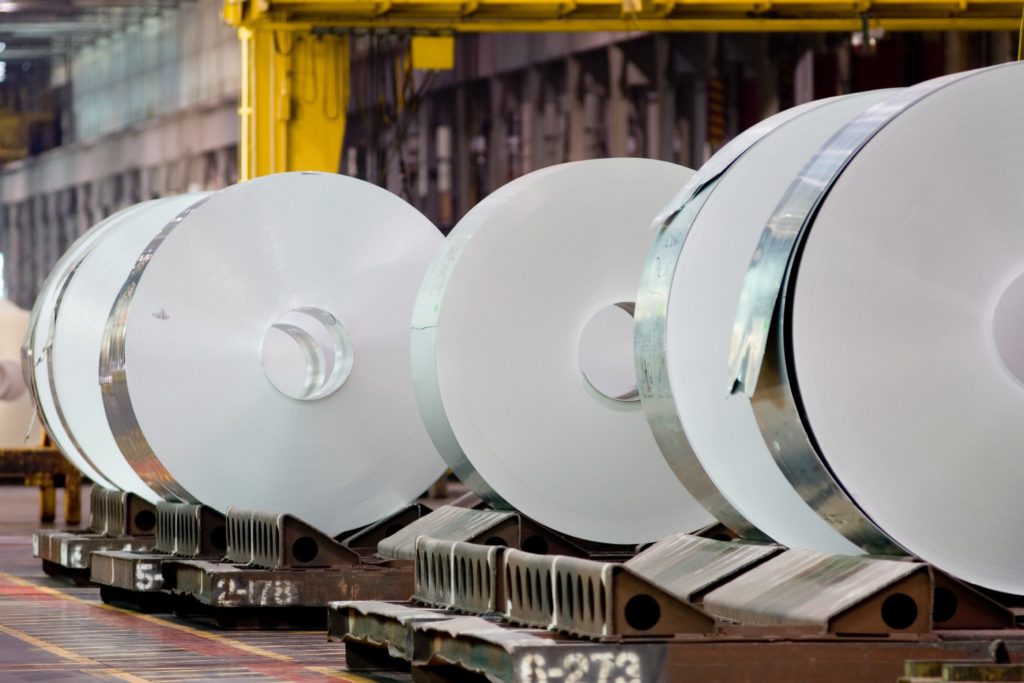Alcoa sinks as aluminum shipments fall in sign of waning demand

Alcoa Corp. shares dropped the most in eight months after the aluminum producer said sales slumped as prolonged supply-chain disruptions curbed shipments, raising concern that the tie-ups may erode customer demand for the metal.
The Pittsburgh-based company posted sales of $3.29 billion in the first quarter, below the $3.42 billion average of estimates compiled by Bloomberg. It reported higher amounts of inventory due to a lack of available train cars and vessels, especially in North America. Chief Executive Roy Harvey told analysts on a call Wednesday that Russia’s invasion of Ukraine has exacerbated the supply chain crisis, making the chip shortage for carmakers more difficult.
The shares fell as much as 11% in New York, the biggest decline since August. Uncertainties caused by rising inflation, the Ukraine war and China’s recent slowdown could be creeping into the global market for aluminum, which is used in everything from automobiles and construction to appliances. Harvey said Alcoa is witnessing some demand erosion due to the supply-chain problems. He sees aluminum demand increasing this year by about 2%, down from a prior forecast of about 2% to 3%.
“We just saw the IMF bring down their expectations for economic growth,” Harvey said on the call. “I think that that tends to start to erode a little bit some of the demand that we see, because aluminum is so tied to the general economic cycle.”
Aluminum prices are down about 20% since hitting an all-time high at the beginning of March on concerns about demand. Covid-19 lockdowns throughout China, the world’s biggest consumer, add to questions about how the Ukraine war will affect one of the top aluminum-consuming regions. Demand in China may rise just 1% this year, well below the 5.1% growth last year, according to Bloomberg Intelligence.
Peak levels
Credit Suisse Group AG analysts see aluminum prices near peak levels and expect the supply-and-demand balance to normalize in the second half of 2022 as trade flows gradually realign. Current geopolitical events, though, give lasting support for aluminum prices, analyst Curt Woodworth said.
The company’s forecast for shipments of aluminum were unchanged from a prior estimate of 2.5 million to 2.6 million metric tons. Meanwhile, earnings before interest, taxes, depreciation and amortization were $1.072 billion, higher than the $1.04 billion average estimate of 10 analysts compiled by Bloomberg. It marked the best quarter since Alcoa split from its jet- and car-parts business in 2016.
Harvey noted that the company’s order books are still full through the year.
(By Joe Deaux)
{{ commodity.name }}
{{ post.title }}
{{ post.date }}




Comments